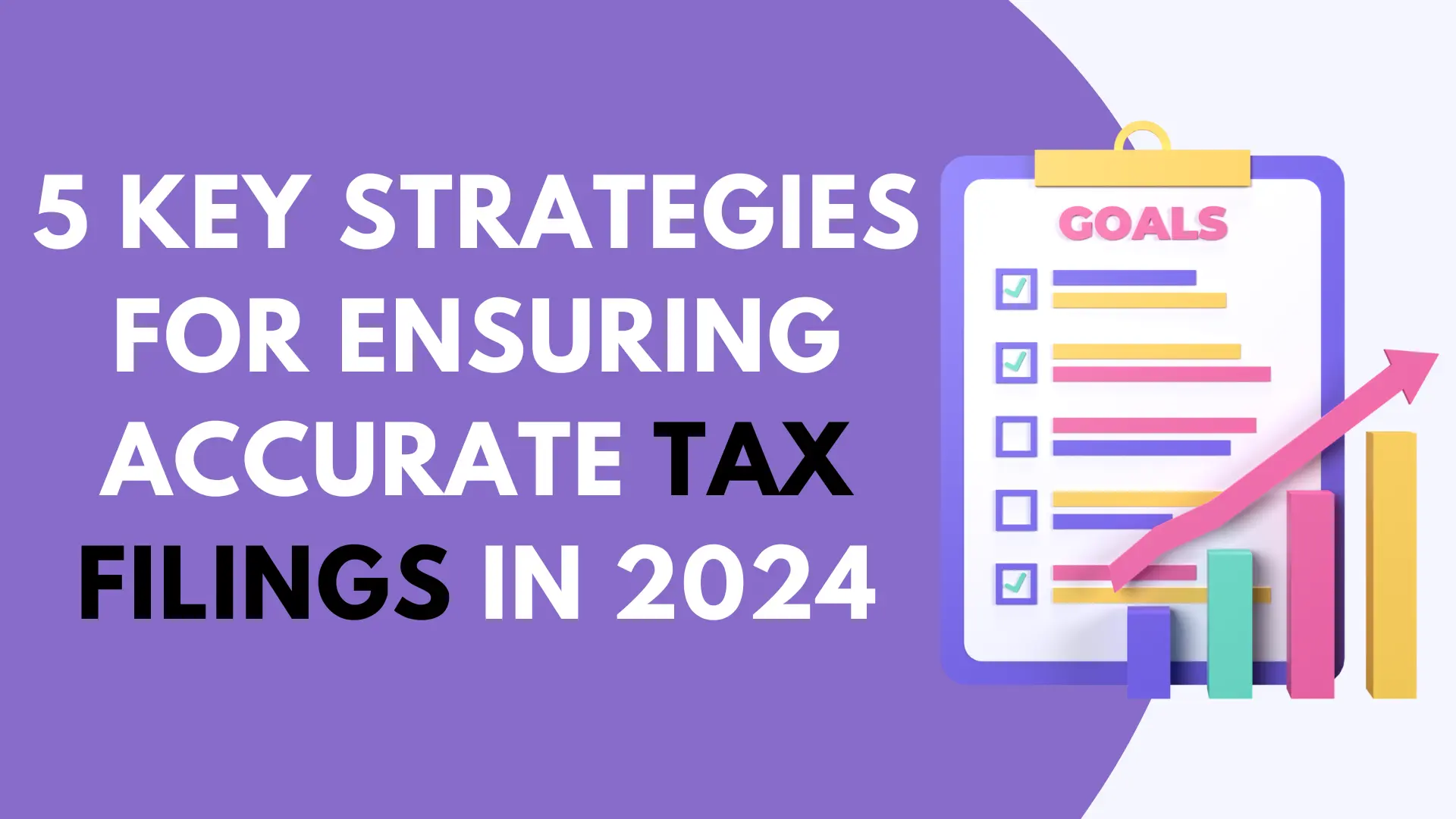Ensuring your tax filings are accurate is crucial for avoiding penalties and making the most of potential deductions. As tax laws and regulations continue to evolve, it’s more important than ever to stay informed and organized. In this guide, we’ll explore five key strategies to help you achieve accurate tax filings in 2024.
Organize Your Financial Records Early
Staying on top of your financial records throughout the year can significantly simplify the tax filing process. Accurate tax and accounting practices begin with maintaining well-organized documents. Start by creating a system for tracking income, expenses, and receipts. This system could involve digital tools like accounting software, which can automatically categorize transactions and generate reports. By doing so, you’ll have a clear picture of your financial situation, making it easier to file accurate tax returns.
Additionally, keeping your financial records organized can help you identify any discrepancies early on. Regularly reviewing bank statements and financial documents ensures that everything is accounted for correctly. This habit not only supports accurate tax and accounting practices but also helps in detecting potential fraud or errors.
For example, setting aside time each month to reconcile your accounts can prevent small mistakes from becoming major issues. If you discover an error, you can address it promptly rather than scrambling to fix it during tax season. Furthermore, having a comprehensive and up-to-date record can simplify the process if you ever face an audit.
Stay Updated On Tax Law Changes
Tax laws can change from year to year, and staying informed about these changes is essential for accurate tax filings. Subscribe to newsletters from reputable financial news sources or consult with a tax professional to keep up-to-date with the latest regulations. Understanding new tax laws and how they impact your filings can help you avoid mistakes and take advantage of new deductions or credits.
For instance, if there are new deductions available for home office expenses, knowing this information can save you money. Similarly, changes in tax brackets or retirement account contribution limits can affect your overall tax strategy. Staying informed ensures you’re not caught off guard by unexpected tax liabilities.
Utilize Tax Software Or Professional Services
- Tax software can simplify the filing process and help you avoid common mistakes.
- These tools often include built-in checks for errors and provide step-by-step guidance.
- Many software options are updated regularly to reflect the latest tax laws, ensuring compliance.
- Consider hiring a professional tax preparer if your financial situation is complex.
- A professional can offer personalized advice and ensure your return is accurate and optimized.
Tax software can be a lifesaver for many filers, especially those with straightforward tax situations. These programs guide you through the filing process, asking questions to ensure you don’t miss any deductions or credits. They also perform error checks to catch common mistakes, reducing the risk of inaccuracies.
For individuals with more complex financial situations, such as business owners or those with multiple income streams, hiring a professional tax preparer might be the best option. Professionals stay current with tax laws and can provide tailored advice to optimize your tax return. They can also represent you in case of an audit, providing peace of mind.
Deduct Everything You’re Entitled To
Maximizing your deductions can reduce your taxable income and lower your tax bill. To ensure you’re claiming all eligible deductions, keep thorough records of your expenses. Common deductions include medical expenses, charitable contributions, and business-related costs. Don’t overlook less obvious deductions, such as job search expenses or educator expenses if you’re a teacher.
Using a tax professional or reputable software can help you identify and claim all possible deductions. These tools often prompt you to enter information that might qualify for a deduction, ensuring nothing is missed. Additionally, some deductions have specific documentation requirements, so having all necessary receipts and records on hand is crucial.
Review And Double-Check Your Return
- Double-check all personal information, including Social Security numbers and addresses.
- Ensure all income sources are reported accurately, including wages, investments, and freelance work.
- Verify that all deductions and credits are correctly applied and supported by documentation.
- Use the error-checking feature in tax software to catch common mistakes.
- Consider having a trusted person review your return before submitting it to catch any overlooked errors.
Reviewing your tax return thoroughly before submission is a critical step. Simple mistakes, such as incorrect Social Security numbers or misspelled names, can delay your refund or trigger further scrutiny. Ensure that all income sources, from primary employment to side gigs, are accurately reported. Failing to report all income can result in penalties or audits.
Double-checking deductions and credits is equally important. Ensure you have the necessary documentation to support your claims. Using tax software’s error-checking feature can help identify common mistakes. However, an extra set of eyes can be invaluable. Consider asking a trusted friend or family member to review your return before submission.
Conclusion
Accurate tax filings are essential for financial stability and compliance. By organizing your financial records, staying updated on tax law changes, utilizing tax software or professional services, maximizing your deductions, and thoroughly reviewing your return, you can ensure your 2024 tax filings are accurate and stress-free. Taking these steps will not only help you avoid potential penalties but also make the most of your financial situation. Implementing these strategies ensures you’re well-prepared, confident, and ready to tackle tax season with ease.





